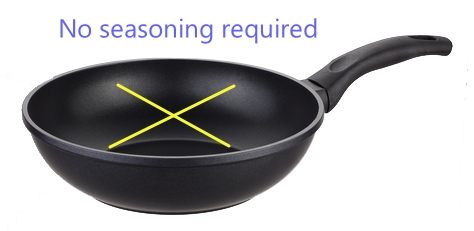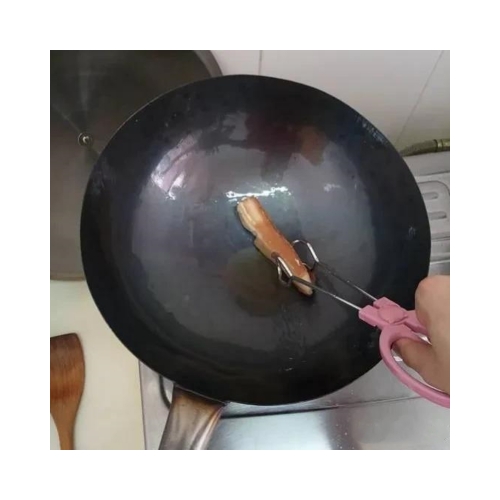Aluminum non-stick cookware is a kitchen staple, prized for its excellent heat conductivity, lightweight design, and affordability. But a common question arises: Does aluminum cookware need to be seasoned like cast iron or carbon steel? The short answer is no—but understanding why, and how to care for your aluminum pots and pans, can extend their lifespan and optimize performance. Let’s dive into the details.
What Is Seasoning, and Why Do Some Cookware Need It?
Seasoning involves coating cookware with oil and heating it to create a natural non-stick layer. This process is essential for:
- Cast iron: Prevents rust and enhances non-stick properties.
- Carbon steel: Similar to cast iron, requiring seasoning to avoid corrosion.
Aluminum, however, behaves differently due to its inherent properties.
Why Aluminum wok Doesn’t Require Seasoning
- Natural Oxidation: Aluminum forms a protective oxide layer when exposed to air, preventing corrosion. Seasoning can disrupt this layer.
- Reactivity: Raw aluminum reacts with acidic foods (e.g., tomatoes, vinegar), potentially leaching metal into dishes. Modern anodized or coated aluminum solves this issue.
- Non-Stick Coatings: Many aluminum pans come pre-coated with non-stick surfaces, making seasoning unnecessary.
Exceptions: When Might Aluminum Need Special Care?
While most aluminum cookware doesn’t need seasoning, consider these cases:
- Uncoated, Non-Anodized Aluminum: Rare today, but older pans may benefit from a light oil coating to minimize reactivity. Avoid high-heat seasoning, as it can cause sticky residue.
- Anodized Aluminum: This chemically treated version is non-reactive and durable. Manufacturers like Calphalon recommend gentle cleaning—no seasoning required.
How to Care for Aluminum Cookware?
Maximize your cookware’s longevity with these tips:
- Avoid Abrasive Cleaners: Use mild soap and soft sponges to prevent scratching.
- Hand Wash Coated Pans: Dishwasher detergents can degrade non-stick surfaces.
- Dry Thoroughly: Prevent water spots and mineral buildup.
- Use Low to Medium Heat: Aluminum heats quickly—high heat can warp pans or damage coatings.
Risks of Seasoning Aluminum Cookware
Attempting to season aluminum may lead to:
- Sticky Residue: Oil can polymerize unevenly, creating a gummy surface.
- Off-Flavors: Reactivity with acidic foods may impart metallic tastes.
- Damaged Coatings: High heat during seasoning can harm non-stick layers.
Alternatives for a Non-Stick Experience
If you want a seasoned-like surface:
- Opt for hard-anodized aluminum (naturally non-stick and durable).
- Use a small amount of oil or butter while cooking.
- Invest in quality non-stick aluminum pans (e.g., Teflon-coated).
FAQs About Aluminum Cookware
Q: Is aluminum cookware safe?
A: Yes! Anodized or coated aluminum poses no health risks. Even uncoated aluminum is considered safe by the FDA, though acidic foods may cause minimal leaching.
Q: Why does my aluminum pan discolor?
A: Oxidation or mineral deposits from hard water. Clean with a vinegar-water solution to restore shine.
Q: Can I use metal utensils on aluminum pans?
A: Avoid them if your pan has a non-stick coating. Stick to silicone or wooden tools.
Conclusion
Aluminum cookware doesn’t require seasoning, thanks to its natural oxidation and modern coatings. Instead, focus on proper cleaning, avoiding abrasive tools, and using moderate heat. By following these guidelines, your aluminum pots and pans will deliver reliable performance for years—no seasoning needed!
Post time: Apr-23-2025


